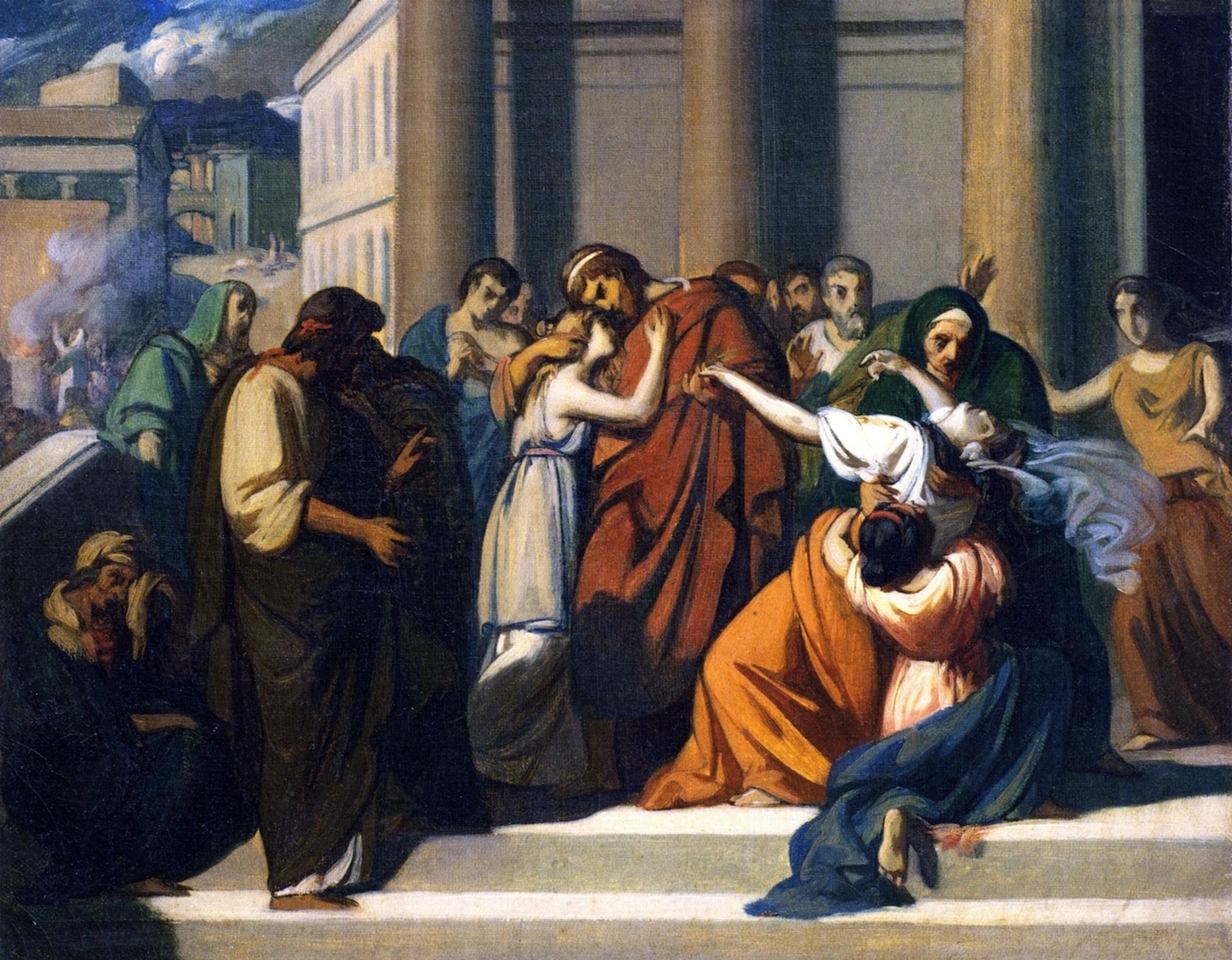|
Queen Of Thebes (other)
Queen of Thebes can refer to: *Nycteïs, wife of Polydorus *Jocasta In Greek mythology, Jocasta (), also rendered Iocaste ( grc, Ἰοκάστη ) and also known as Epicaste (; ), was a daughter of Menoeceus, a descendant of the Spartoi Echion, and queen consort of Thebes. She was the wife of first Laius, t ..., wife/mother of Oedipus * Ino (Greek mythology), daughter of Cadmus * Niobe, wife of Amphion *Retrea, mother of Orion (mythology) See also * Theban kings in Greek mythology {{disambig ... [...More Info...] [...Related Items...] OR: [Wikipedia] [Google] [Baidu] |
Polydorus
In Greek mythology, Polydorus (; grc, Πολύδωρος, i.e. "many-gift d) or Polydoros referred to several different people. *Polydorus, son of Phineus and Cleopatra, and brother of Polydector (Polydectus). These two sons by his first wife were blinded by Phineus because of the instigation of their stepmother, Idaea who accused them of corrupting her virtue. * Prince Polydorus, son of the King Cadmus and goddess Harmonia, fathered Labdacus by his wife Nycteis. *Polydorus, an Argive, son of Hippomedon and Euanippe, daughter of Elatus. Pausanias lists him as one of the Epigoni, who attacked Thebes in retaliation for the deaths of their fathers, the Seven against Thebes, who died attempting the same thing. * Prince Polydorus, a Trojan, was the King Priam's youngest son. *Polydorus, a Ceteian warrior who participated in the Trojan War. During the siege of Troy, he was killed by Odysseus using his sword along with Aenus, another Ceteian. (Ceteius is called a stream in Asia Minor) ... [...More Info...] [...Related Items...] OR: [Wikipedia] [Google] [Baidu] |
Jocasta
In Greek mythology, Jocasta (), also rendered Iocaste ( grc, Ἰοκάστη ) and also known as Epicaste (; ), was a daughter of Menoeceus, a descendant of the Spartoi Echion, and queen consort of Thebes. She was the wife of first Laius, then of their son Oedipus, and both mother and grandmother of Antigone, Eteocles, Polynices and Ismene. She was also sister of Creon and mother-in-law of Haimon. Life After his abduction and rape of Chrysippus, Laius married Jocasta. Laius received an oracle from Delphi which told him that he must not have a child with his wife, or the child would kill him and marry her; in another version, recorded by Aeschylus, Laius is warned that he can only save the city if he dies childless. One night, Laius became drunk and fathered Oedipus with Jocasta. Jocasta handed the newborn infant over to Laius. Jocasta or Laius pierced and pinned the infant's ankles together. Laius instructed his chief shepherd, Menoetes (not to be confused with Menoetes ... [...More Info...] [...Related Items...] OR: [Wikipedia] [Google] [Baidu] |
Ino (Greek Mythology)
In Greek mythology, Ino ( ; grc, Ἰνώ ) was a Theban princess who later became a queen of Boeotia. After her death and transfiguration, she was worshiped as a goddess under her epithet Leucothea, the "white goddess." Alcman called her "Queen of the Sea" ( ''thalassomédousa''), which, if not hyperbole, would make her a doublet of Amphitrite. Family Ino was the second daughter of the King Cadmus and Queen Harmonia of Thebes and one of the three sisters of Semele, the mortal woman of the house of Cadmus who gave birth to Dionysus. Her only brother was Polydorus, another ruler of Thebes. Together with her two sisters, Agave and Autonoë, they were the surrogates and divine nurses of Dionysus:Ino was a primordial Dionysian woman, nurse to the god and a divine maenad. (Kerenyi 1976:246)Ino was the second wife of the Minyan king Athamas, mother of Learchus and Melicertes and stepmother of Phrixus and Helle. Mythology Maenads were reputed to tear their own children limb from ... [...More Info...] [...Related Items...] OR: [Wikipedia] [Google] [Baidu] |
Niobe
In Greek mythology, Niobe (; grc-gre, Νιόβη ) was a daughter of Tantalus and of either Dione, the most frequently cited, or of Eurythemista or Euryanassa, the wife of Amphion and the sister of Pelops and Broteas. Her father was the ruler of a city located near Manisa in today's Aegean Turkey that was called "Tantalis" or "the city of Tantalus", or "Sipylus". The city was located at the foot of Mount Sipylus and its ruins were reported to be still visible at the beginning of the 1st century AD, although few traces remain today. Pliny reports that Tantalis was destroyed by an earthquake and the city of Sipylus (Magnesia ad Sipylum) was built in its place. Niobe's father is referred to as " Phrygian" and sometimes even as "King of Phrygia", although his city was located in the western extremity of Anatolia where Lydia was to emerge as a state before the beginning of the first millennium BC, and not in the traditional heartland of Phrygia, situated more inland. There are r ... [...More Info...] [...Related Items...] OR: [Wikipedia] [Google] [Baidu] |
Orion (mythology)
In Greek mythology, Orion (; Ancient Greek: Ὠρίων or ; Latin: ''Orion'') was a giant huntsman whom Zeus (or perhaps Artemis) placed among the stars as the constellation of Orion. Ancient sources told several different stories about Orion; there are two major versions of his birth and several versions of his death. The most important recorded episodes are: his birth in Boeotia, his visit to Chios where he met Merope and raped her, being blinded by Merope's father, the recovery of his sight at Lemnos, his hunting with Artemis on Crete, his death by the bow of Artemis or the sting of the giant scorpion which became Scorpius, and his elevation to the heavens. Most ancient sources omit some of these episodes and several tell only one. These various incidents may originally have been independent, unrelated stories, and it is impossible to tell whether the omissions are simple brevity or represent a real disagreement. In Greek literature he first appears as a great hunter in ... [...More Info...] [...Related Items...] OR: [Wikipedia] [Google] [Baidu] |

.jpg)
